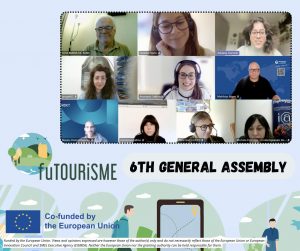The fifth session of the Intergovernmental Negotiating Committee (INC-5.2)in which a legally binding treaty to end plastic pollution was to be drawn up, ended without agreement. Despite intensive negotiations between 183 countries, key issues such as upper limits for plastic production, the control of hazardous chemicals and financing mechanisms remained unresolved.
UN Secretary-General António Guterres deeply regretted the failure to reach an agreement, but praised the joint determination of the member states to continue the process. Inger Andersen, Executive Director of UNEP, emphasized that plastic pollution is now “in our groundwater, in our soil, in our oceans and yes, in our bodies”.
The tourism sector is closely linked to the challenge of plastic pollution:
- 80% of tourists visit coastal areas, contributing to the eight million tons of plastic that end up in the oceans every year
- In the high season, the amount of marine litter can increase by up to 40 % at destinations such as the Mediterranean
- The sector continues to rely heavily on single-use plastics for hygiene and convenience – from hotel toiletries to food packaging
- If the current trend continues, plastics production could account for 19% of global greenhouse gas emissions by 2040
In response, over 500 organizations have joined the Global Tourism Plastics Initiative (GTPI). This initiative is led by UN Tourism and UNEP in collaboration with the Ellen MacArthur Foundation. The signatories commit to the following:
- Elimination of unnecessary single-use plastics
- Switch to reusable systems
- Ensuring that all plastic packaging is reusable, recyclable or compostable.
- Increasing the proportion of recycling
- Improving the waste management infrastructure
The GTPI’s 2024 annual report progress assessment highlights the increasing willingness among accommodation providers, tour operators, cruise lines and destinations to address these measures.
The fact that no agreement was reached in Geneva does not mean the end, but rather a call to step up efforts. Tourism professionals, destinations and businesses now have a unique opportunity to lead by example and support global environmental goals.
As Inger Andersen said: “People are demanding a treaty.” Until one is in place, the tourism industry must act decisively to reduce its plastic footprint and protect the ecosystems that make tourism possible in the first place.



